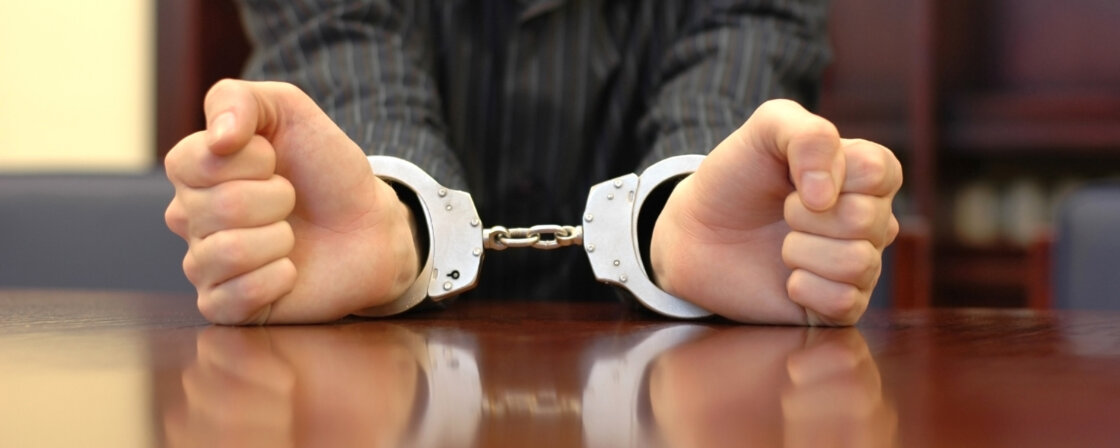What is criminal liability
Criminal liability is the responsibility of an individual for the commission of a criminal offence. This means that a person can be prosecuted, tried and punished under criminal law for an act that qualifies as a crime.
Who is criminally responsible
A person is criminally liable if he or she meets the legal conditions set out in the criminal law. To be criminally liable, a person must meet the following three conditions:
He or she must be over 15 years of age
In the Czech Republic, criminal liability begins at the age of 15. Persons under the age of 15 cannot be held criminally liable. This means that if a child under the age of 15 commits an act that would otherwise be considered criminal, he or she cannot be prosecuted under criminal law. Such cases are dealt with through other mechanisms (for example, child welfare or educational measures).
Must be sane
A person must be sane, which means that he or she must have the capacity to recognise the wrongfulness of his or her actions and to control his or her behaviour. Insanity can be caused by various factors, most commonly:
- Mental illness: For example, schizophrenia, severe depression, or other mental disorders.
- Mental retardation: the individual does not have sufficient intellectual capacity to recognize the wrongfulness of his or her actions.
- Temporary insanity: For example, due to severe alcohol or drug intoxication. However, if the person is in this state intentionally (e.g., got drunk to make it easier to steal), he or she is still criminally responsible.
Tip for article
How to get out of court with probation? Find out in our next article.
Are you solving a similar problem?
Are you accused of a crime?
Then you will only succeed in court if your defence is bulletproof. We will conduct a careful analysis of the case and propose a course of action for the defence in a criminal trial in which we will vigorously enforce your rights.
I want to help
- When you order, you know what you will get and how much it will cost.
- We handle everything online or in person at one of our 6 offices.
- We handle 8 out of 10 requests within 2 working days.
- We have specialists for every field of law.
It has to be culpability
Culpability is the subjective aspect of the offence and means the intrinsic relation of the offender to the consequences of his actions. There are two forms of culpability:
- Intent: It presupposes that the person intended to commit the crime or was aware that he or she would cause it. Intent can be direct (the person wants to cause the consequence) or indirect (the person is aware of the possibility of the consequence and is resigned to it).
- Negligence: presumes that the person caused the consequence through lack of care or diligence, although he or she could and should have known that such a consequence could occur. Negligence may be conscious (the person knows of the risk but relies on it not occurring) or unconscious (the person does not know of the risk but should).
These conditions apply to natural persons. However, there are other specific groups for which the conditions of criminal liability differ. Let’s take a closer look at two of them – minors and legal persons.
Criminal liability of minors
The criminal liability of juveniles is regulated primarily by the Juvenile Justice Act. Juveniles are persons who have reached the age of 15 but have not exceeded the age of 18. In addition to the three classic conditions, these persons are also considered in terms of their intellectual and moral maturity, which may vary considerably from person to person. However, the law states that “A juvenile who, at the time of the commission of the act, has not attained such intellectual and moral maturity as to be able to recognize its unlawfulness or to control his or her actions shall not be held criminally responsible for that act.” This means that if the juvenile is found not criminally responsible, the same procedure as for children under 15 years of age is followed or one of the protective measures is chosen (this includes, for example, protective education)
One example is 15-year-old Tomáš, who participated in a robbery of a local nightclub with a group of older friends. Tomas is intellectually and emotionally challenged compared to his peers and has a diagnosis of Attention Deficit Hyperactivity Disorder (ADHD). At the time of the crime, he was under pressure from his older friends and did not fully understand the consequences of his actions or the illegality of his actions.
In this case, therefore, the court could find that Thomas had not attained the intellectual and moral maturity at the time of the offence to recognise the illegality of his actions or to control his actions. Therefore, Thomas could not be held criminally responsible for the act.
Criminal liability of legal persons
A legal person is an entity that is the bearer of rights and obligations but is not a natural person. It can be, for example, a company (s.r.o., a.s.), an association, a foundation, a public institution, etc. Legal persons can act in legal relations in the same way as natural persons, for example, they can own property, enter into contracts, be sued and sue.
Tip for article
Tip: Are you planning to set up an LLC? We will guide you through the process of setting up a company and offer you all the services you need for your business.
A legal person does not exist as such, but is represented by a natural person or group of persons. For this reason, criminal liability is also specific, which is regulated by the Act on Criminal Liability of Legal Persons and Proceedings Against Them. The condition of imputability must therefore be met for the criminal liability of a legal person. Criminal liability can therefore only arise for acts committed by certain persons associated with the legal person. These persons may be:
- Statutory bodies, members of the statutory body, or other persons acting on behalf of the company (e.g. executive officers, members of the board of directors).
- Persons in a managerial position who are in charge of control or supervisory activities.
- Persons in a managerial position who have decisive influence on the actions of the legal entity (e.g. directors, managers).
- Employees or other persons subordinate to the management body if they acted on the instructions or with the consent of the management body. Or where the governing bodies did not prevent the criminal conduct when they could have (e.g. did not control the work of the employee as they should have).
At the same time, it is also necessary to comply with the condition that the offence must be committed for the benefit of a legal person, on behalf of a legal person, in the course of its activities or through its activities. This means that the offence must be related to or benefit the activities of the legal person.
An example might be a situation where employees of a company start dumping toxic chemicals into a nearby river at the behest of the company’s CEO because it is less time consuming and cheaper than disposing of the waste in a prescribed manner.
Exclusions from criminal liability
In some cases, you may commit an act that would otherwise be criminal but is perfectly legal and proper in a particular situation. The exclusions from criminal liability will determine how to proceed. These are legal institutes that determine the conditions under which an act is not considered a crime, even though it would otherwise meet the elements of a crime. Specifically, these include:
Necessary defence
Necessary defence is a legal institute that allows a person to protect his or her interests (e.g. life, health, property) against an imminent or ongoing attack without such defence being considered a criminal offence. The conditions of necessary defence include:
- Imminent or continuing attack: the defence must be in response to an imminent or continuing attack on an interest protected by criminal law (e.g. attack on life, health, personal liberty, property). The attack must be real and actual, i.e. it must be actually threatened or ongoing.
- The defence must not be manifestly disproportionate to the nature and danger of the attack. This means that the defence must be adequate to the situation in which the person is and must not cause more harm than the attack would have caused.
- Necessity of the defence: The defence must be necessary to repel the attack, i.e. there must be no other less serious means of repelling it.
Example of necessary defence: Mr Vančura is returning home at night and is attacked by a man with a knife on a dark street and demands his wallet. Mr. Novák defends himself with a fist and then knocks the attacker to the ground. The use of reasonable physical force is considered a necessary defense in this case because Mr. Novak faced an imminent attack and had no other way to repel the attack.
Extreme emergency
Extreme hardship is another legal institution that allows a person to act in a way that would normally be considered a criminal offence if it averts an imminent danger to a protected interest. The conditions of extreme emergency include:
- Imminent danger: The danger must threaten the protected interest (e.g., life, health, property) and must be imminent, i.e., it must be immediate or ongoing.
- Impossibility of otherwise averting: The danger cannot be averted by any means other than by conduct that would normally constitute a criminal offence. That is, there is no other way to resolve the situation without causing harm.
- Proportionality of the harm caused: The harm caused by the emergency action must not be manifestly greater than the harm that was threatened. This means that the damage caused must be less than, or at least comparable to, the threatened damage.
Example of an extreme emergency: Mrs Šmídová is driving her car and loses control on a slippery road. A group of children are crossing in front of her. In order to avoid hitting the children, Ms Novotná jerks the steering wheel and drives into a fence near her house, causing property damage. Her actions are considered extreme hardship because she averted an imminent danger to the children’s lives and the damage caused is less than the imminent damage.
Limitation of criminal liability
It is also possible to get rid of criminal liability if it is time-barred. After the expiry of the limitation period, criminal liability ceases to exist. The length of this period is determined on the basis of the gravity of the offence as follows:
- thirty years in the case of an offence for which the criminal law allows the imposition of an exceptional penalty and an offence committed during the preparation or approval of a privatisation project pursuant to another legal provision;
- fifteen years, if the upper limit of the penalty is at least ten years’ imprisonment;
- ten years, if the upper limit of the penalty is at least five years’ imprisonment;
- five years if the maximum term of imprisonment is at least three years;
- three years for other offences.
Summary
Criminal liability determines when and under what conditions an individual or a legal person can be brought to justice for committing a criminal offence. The Criminal Code sets out clear conditions: attainment of the age of 15 years, sanity and culpability. Juveniles and legal persons have specific conditions of criminal liability that take into account their different legal status and capacity. There are also exceptions to criminal liability, such as necessary defence and extreme urgency, which allow for acting in certain situations in a way that would otherwise be punishable. The statute of limitations on criminal liability provides for the possibility of extinguishing liability after a certain period of time, ensuring that prosecution must be initiated within a reasonable timeframe.




